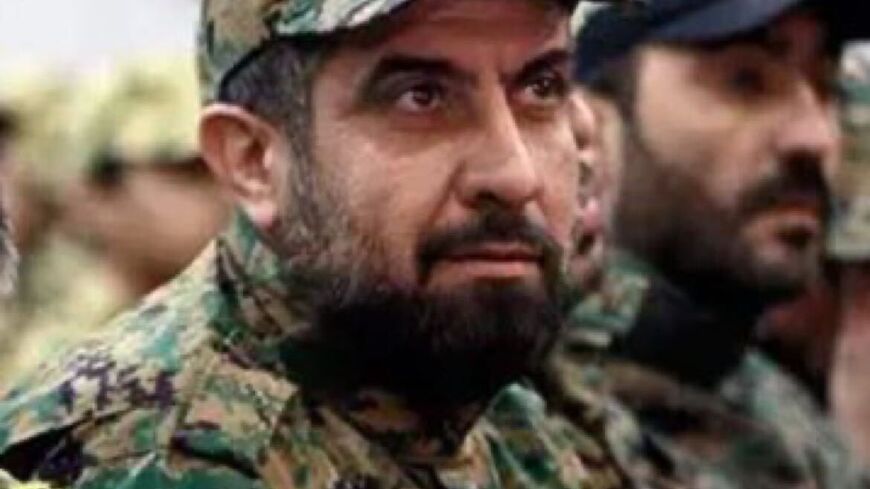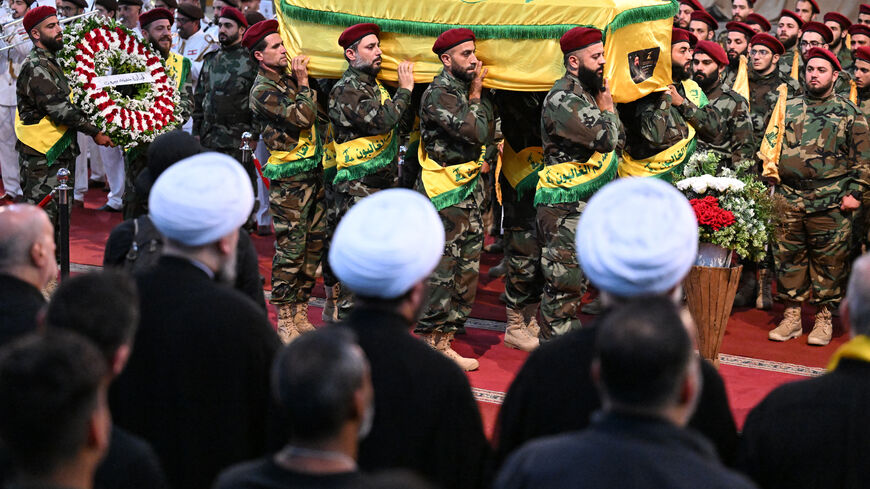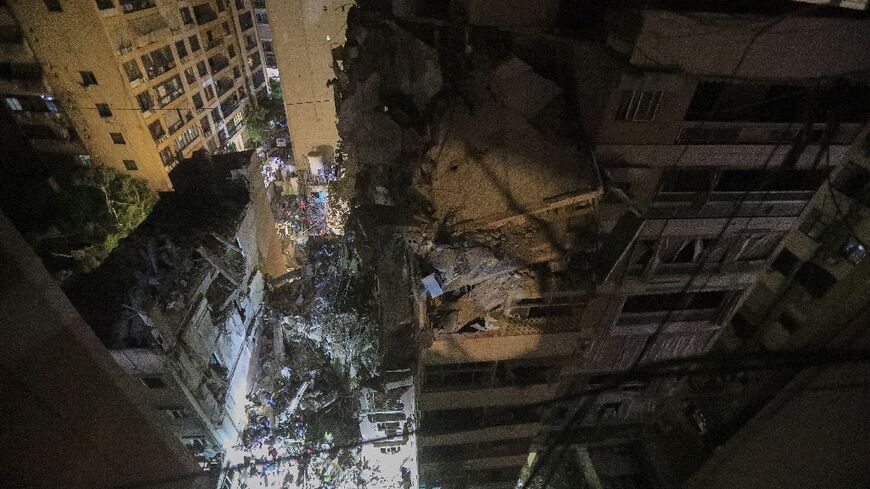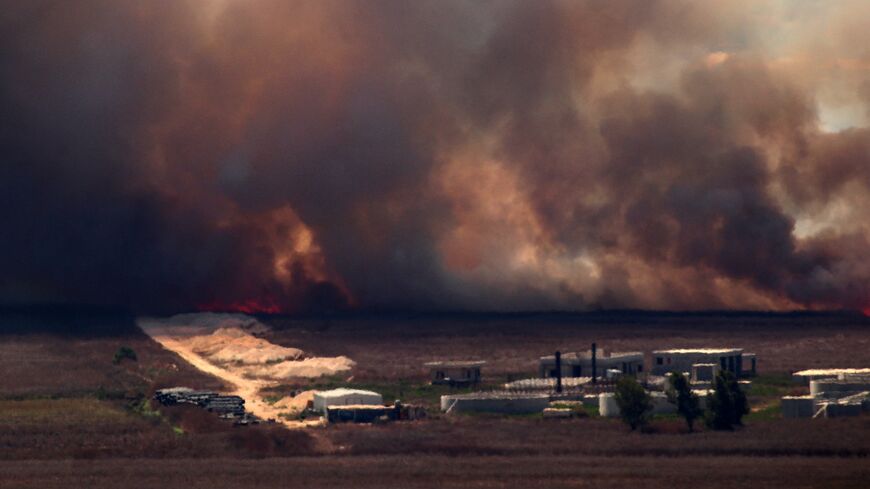Israel confirms killing senior Hezbollah commander in Beirut strike
An Israeli drone strike hit the southern suburbs of Lebanon’s capital, Beirut, on Tuesday, as tensions run high following a rocket strike in the Golan Heights over the weekend.
![🚨 [#Picture] Photos of the aftermath of the strike on Haret Hreik sent to L'Orient Today by Hassan Chaitani, local resident in the area.](/sites/default/files/styles/article_hero_medium/public/2024-07/Dahiye.jpeg?h=08b866d1&itok=CsamCWmc)
BEIRUT — An Israeli drone strike hit the southern suburbs of Lebanon’s capital, Beirut, on Tuesday, targeting a Hezbollah commander after an attack in the Golan Heights on Saturday that killed 12 people.
According to Lebanon’s official news agency, the strike hit near the headquarters of Hezbollah’s Shura Council in the Haret Hreik neighborhood. Hezbollah's outlet Al-Manar said the drone fired three rockets at the building. Lebanon's Health Ministry reported that three people were killed in the strike, and at least 70 injured.
This was the first time since January that Israel struck southern Beirut. On Jan. 3, a drone attack killed Hamas senior commander Saleh al-Arouri in the area.
The Israeli military confirmed the attack.
"The IDF targeted in Beirut the commander responsible for the murder of the children in Majdal Shams and many Israeli civilians. At this point, there is no change in the directives of the Home Front Command," Israeli military spokesperson Daniel Hagari wrote on X.
Haaretz reported that the target of the Israeli strike was Hezbollah's second in command, Fuad Shukr, also known as al-Hajj Mohsin, who heads the military operations of the group and Hezbollah's precision missile project. Israeli public broadcaster Kan said that if Shukr was targeted, it was because he was the one responsible for the rockets on Saturday.
Footage of the flattened building after a presumed Israeli strike on Hezbollah’s stronghold in Beirut’s southern suburbs. Unconfirmed reports the target included a senior Hezbollah official. pic.twitter.com/6bom8h4tRy
— Firas Maksad (@FirasMaksad) July 30, 2024
Israeli Prime Minister Benjamin Netanyahu instructed his cabinet ministers not to comment on the issue. The only Israeli reactions so far have been a picture of Netanyahu consulting with Israeli military chiefs published by his office and a short statement on X by Defense Minister Yoav Gallant saying that “Hezbollah crossed the red line.”
Hours after the attack in Lebanon, multiple explosions were reported in Iraq in areas controlled by Iran-backed militias. Explosions were heard in Iraq's Babylon governorate where the headquarters of the Popular Mobilization Forces (PMF) are located, Al-Arabiya said.
Israel accused Hezbollah of being behind the rocket attack that struck a soccer field in the Arabic-speaking Druze town of Majdal Shams in the Israeli-annexed Golan Heights on Saturday. At least 12 people were killed, most of them children, in the deadliest attack against civilians in both Lebanon and Israel since Hezbollah and the Israeli army began exchanging fire along the border on Oct. 8.
Israel occupied the Golan Heights following the 1967 war and annexed the territory in 1981.
This developing story has been updated since initial publication.







